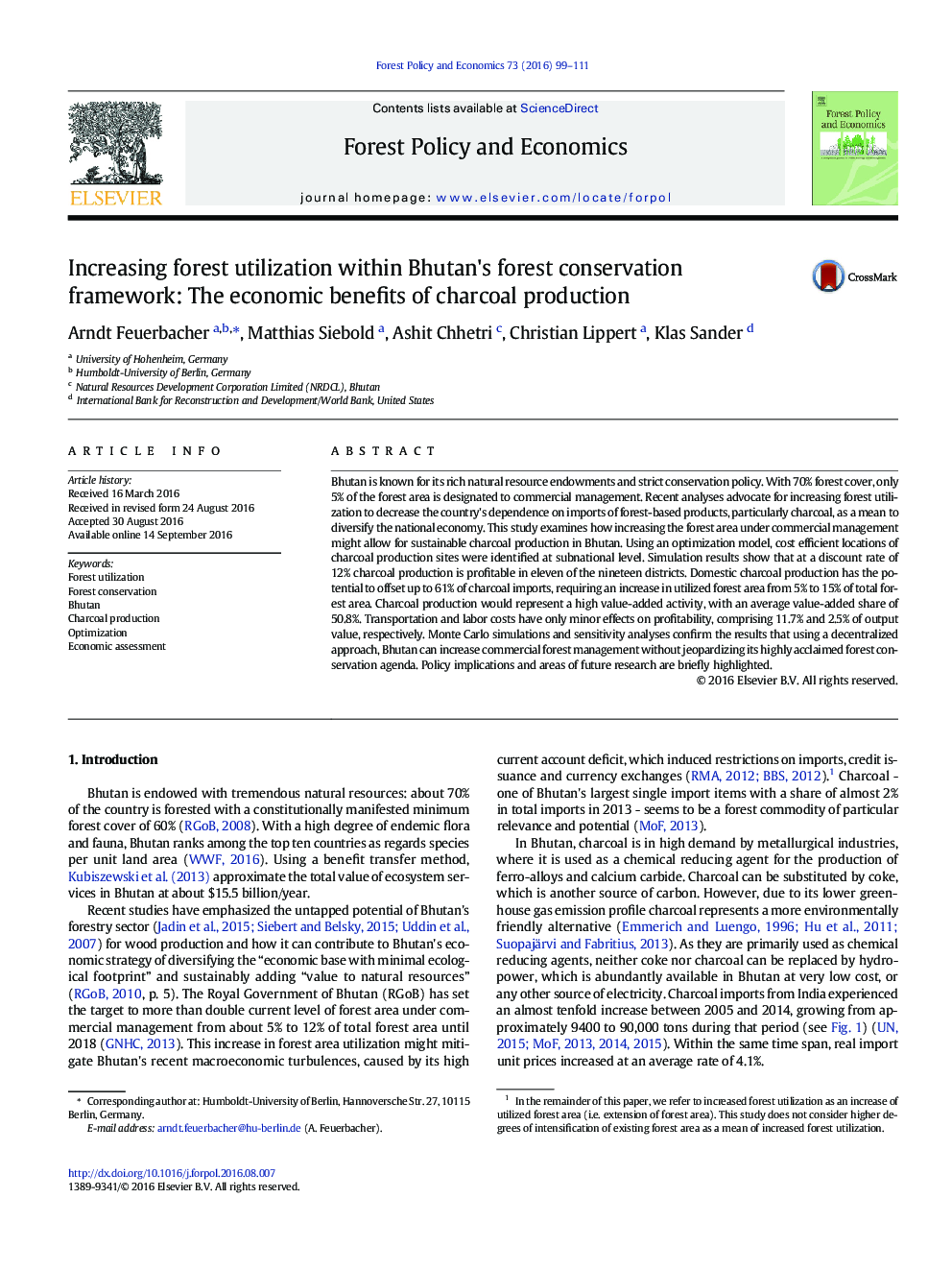| کد مقاله | کد نشریه | سال انتشار | مقاله انگلیسی | نسخه تمام متن |
|---|---|---|---|---|
| 6459826 | 1421666 | 2016 | 13 صفحه PDF | دانلود رایگان |
- Development of an optimisation model to identify cost efficient charcoal production sites
- Embedding the analysis within Bhutan's forest conservation framework
- Domestic charcoal production can substitute up to 61% of imports
- Monte Carlo simulations and sensitivity analysis demonstrate robustness of model results
- Increased forest utilization can contribute to economic diversification without jeopardizing Bhutan's conservation agenda
Bhutan is known for its rich natural resource endowments and strict conservation policy. With 70% forest cover, only 5% of the forest area is designated to commercial management. Recent analyses advocate for increasing forest utilization to decrease the country's dependence on imports of forest-based products, particularly charcoal, as a mean to diversify the national economy. This study examines how increasing the forest area under commercial management might allow for sustainable charcoal production in Bhutan. Using an optimization model, cost efficient locations of charcoal production sites were identified at subnational level. Simulation results show that at a discount rate of 12% charcoal production is profitable in eleven of the nineteen districts. Domestic charcoal production has the potential to offset up to 61% of charcoal imports, requiring an increase in utilized forest area from 5% to 15% of total forest area. Charcoal production would represent a high value-added activity, with an average value-added share of 50.8%. Transportation and labor costs have only minor effects on profitability, comprising 11.7% and 2.5% of output value, respectively. Monte Carlo simulations and sensitivity analyses confirm the results that using a decentralized approach, Bhutan can increase commercial forest management without jeopardizing its highly acclaimed forest conservation agenda. Policy implications and areas of future research are briefly highlighted.
Journal: Forest Policy and Economics - Volume 73, December 2016, Pages 99-111
